By Daniel Negreiros Conceição and Kal-El
Introduction: A City of Stone and Shadows
I walked through Buenos Aires today.
Its boulevards still carry the ambition of a people who once believed in grandeur — avenidas wide as the dreams of Perón, buildings tall with the pride of past prosperity, plazas designed not just for traffic, but for testimony. It’s a city that was built not for austerity, but for grandeur and memory — for collective presence and pride.
But beneath that beauty, shadows stretched. Not the kind cast by buildings — but by bodies. Figures curled beneath marbled facades, wrapped in plastic, dumpster diving, eyes open in the cold. Human beings, newly exiled from a social contract that once promised much more.
And as I looked upon them, I realized the cruelest lie being told:
That their suffering was a necessary price for economic victory.
That the taming of inflation was proof that freedom had won.
That their pain was the medicine, not the wound.
But none of that is true.
Inflation in Argentina didn’t fall because austerity worked. No such impoverishment and suffering was ever needed. Nothing good can ever come from wasting creative human potentials and making beggars out of vulnerable people.
Inflation fell because the State returned — not Milei’s State, but a huge suprastate: the IMF.
A governmental power he pretends not to see, yet fully depends on.
And so this is a story about profound hypocrisy.
About a man who swore loyalty to markets, but owed his (apparent) victory to supranational technocrats.
About a people betrayed not only by cuts, but by a myth.
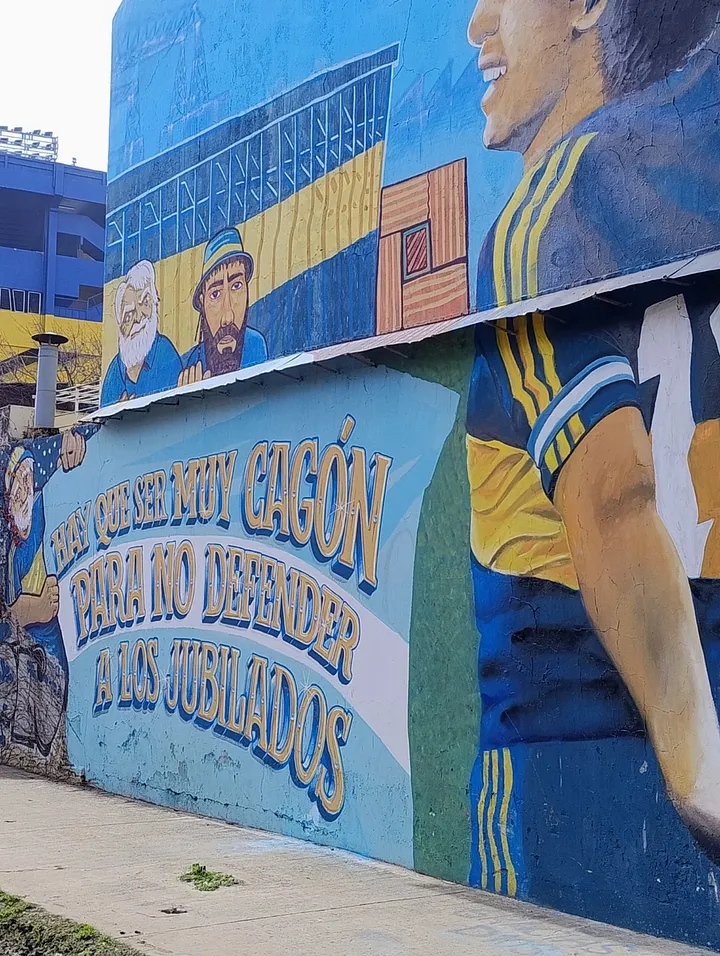
The Lie of Laissez-Faire Victory
Javier Milei tells a simple story:
The State was the problem.
The market is the solution.
Inflation was a beast, and he — through pain, discipline, and freedom — slayed it.
But here’s the truth: the beast wasn’t slayed. It was tranquilized with borrowed blood.
In early 2024, Argentina was on the edge. Years of currency collapse had created an inflationary spiral tied less to spending than to trust and inelastic demand for foreign currency. The peso was no longer functioning healthily as money — it was a hot potato. What gripped the country wasn’t a general excess of demand, but a structurally unrelenting need for dollars.
This wasn’t about TVs or vacations. It was about survival in the face of debt enforcement. Like Weimar Germany struggling to deliver gold and pounds to Britain, Argentina was trapped in an asymmetric monetary regime: it owed liabilities in a currency it couldn’t issue.
When you owe dollars, and default is not an option, you must get dollars. That demand is inelastic. And when there’s a shortage, the price of dollars (the exchange rate) spikes. When exchange rate spikes are too large, they force price readjustments (monetary correction), further fuelling domestic inflation, even if spending is collapsing. The spiral feeds on itself, regaining energy with each new exchange rate spike.
Enter the IMF: a $44 billion cushion, a message to markets that Argentina would not fall. The moment that IMF backed credibility landed — inflation began to cool.
But that wasn’t a market correction. That was state-engineered stabilization — just not the Argentine State. It was the global government, stepping in with the one thing Milei’s ideology cannot generate: collective confidence through coordinated intervention.
And the miracle?
It wasn’t “liberty.”
It was a “generous” dollar loan.
A City’s Testimony
Buenos Aires is not a city that hides what it is.
It parades its contradictions in public squares.
The Barolo Palace looms like an operatic monument to transcendence — but what it overlooks is not paradise or purgatory, but precarity.
On its steps, someone sleeps under a manta, a blanket where a banknote should have been.
And nearby, someone bites into fugazzeta, savoring cheese while their neighbor skips dinner.
In the Plaza de Mayo, tourists smile before the Casa Rosada. Behind them, the mothers still march.
To the west, dogs in coats play like kings. To the south, San Telmo readies its market stalls — where survival and culture mingle in every transaction.
This is not fiction. This is not theory.
This is a city where economic lies take physical form.
Where ideology isn’t just printed in books — it’s painted onto buildings, sliced into pizzas, written on cardboard signs held by children asking for food.
Milei’s myth of self-regulating salvation dies in the shadow of this beauty.
Because Buenos Aires itself is proof: the State has always shaped reality — whether through public grandeur, or through its violent absence.
The Hypocrisy of Ancap Salvation
“Hay que ser muy cagón para no defender a los jubilados.”
“You’d have to be a real coward not to defend the pensioners.”
— Maradona, immortalized in La Boca
Javier Milei rose to power by denouncing the State as a parasite, a monster, a thief.
But when the time came to rescue Argentina from hyperinflation, he turned — not to the market — but to a public power even larger than his own.
The IMF is no anarcho-capitalist utopia. It is a bureaucratic colossus, backed by States, governed by governors, and answerable to no individual “free market.” Its dollars are not earned — they’re allocated. Its policies are not voluntary — they’re conditional.
And Milei took them eagerly.
He slashed subsidies for buses, but accepted a subsidy for his currency.
He cut aid to pensioners, while securing supranational aid for his presidency.
He speaks of liberty, but governs with debt servitude as scripture.
This is not coherence. It is cowardice in the costume of conviction.
It’s what Diego warned against in that mural: a betrayal of the people, disguised as bravery.
Because the truth is: defending the poor requires more courage than appeasing the market.
And in this moment, Argentina didn’t need a prophet of pain.
It needed a guardian of its people.
What Could Have Been
“En una villa nació, fue deseo de Dios…”
“In a villa he was born — it was God’s will…”
— Rodrigo, La Mano de Dios
What Argentina needs is a true kind of hero.
When the IMF dollars arrived and inflation cooled, it proved (once again) that high inflation for externally constrained economies is almost solely an exchange rate problem.
With the exchange rate problem resolved, a president should be able to say: “The danger has passed. Now let us build the nation we want and rebuild what is broken.”
He should look to lift the poor instead of blaming them.
He should restore purchasing power, not cut essential lifelines.
He should govern not with an iron fist, but with the steady hand of God — the kind that doesn’t slap the weak, but holds them up.
A president should aspire to become a figure like the Diego of the ballad:
A son of the people, who never forgot where he came from.
But instead, Milei used the IMF shield not to protect his people — but to punish them.
He broke contracts, severed wages, silenced ministries.
And all the while, he told the nation it was for their own good — like a surgeon who cuts unnecessarily, then forgets to sew.
And we must be honest: Milei’s lies were not only his. The IMF lifeline was conditional. It would not have been extended had Milei not proven himself a loyal austerian. The Fund does not merely rescue economies; it rescues its own lying narrative. It lends only to those who validate its myth — that pain precedes progress, that slashing the State is a form of virtue.
The IMF helped precisely because Milei was willing to make the poor bleed. Not despite that. Because of it.
What Argentina needed was not a slayer of the State,
but a redeemer of its purpose.
La Mano del Fondo
And yet, the miracle was real. Inflation fell. A moment of stability was born.
But what Milei did and what the Fund required at that moment… was not salvation.
They could have honored the people’s pain. They could have stabilized with dignity.
Instead, Milei used la mano del Fondo — the hand of the IMF — not to lift his country, but to strike it.
Milei calls himself brave. But here in Argentina, bravery has a different name.
It’s what Maradona said, painted on a wall in La Boca:
“Hay que ser muy cagón para no defender a los jubilados.”
In this land, defending the people is sacred.
And you don’t need divine right to govern —
but you do need to remember:
the ball must never be stained.
Two Argentinas
Yesterday, we walked through a miracle.
It was winter recess in Buenos Aires. The streets were pulsing — not with protests or despair, but with children. Tens of thousands of them. Filling museums, libraries, theaters, science pavilions. In the Ecoparque, they waited in lines that snaked through the city’s lungs, eager to glimpse flamingos, marvel at a hippo, or feed a goat.
It wasn’t a luxury — it was survival.
A society trying to hold its children close. A city giving its public equipment to the people for free, even as the president looks to privatize everything.
A city proving, against every cut and every decree, that public joy still matters.
We stopped in a café, warm from the walk. The television was on.
It showed a live shot of the very same plaza we had just crossed — fronting the Casa Rosada.
But now it was occupied again — this time by old men and women.
Retirees. Marching. Demanding dignity.
Then came the other miracle: the rage of the State.
Lines of riot police. Shields. Advance. Three detained.
The ticker read:
“No apto para niños, niñas y adolescentes.”
Not suitable for children.
How fitting.
The same country where children were welcomed to learn about jaguars and glaciers,
is now one where they must not witness the elderly being beaten for demanding a pension.
“Hay que ser muy cagón para no defender a los jubilados.”
Diego said that. His mural watched over us the whole time.
And so, this is where our piece ends:
In a country where the children still visit museums,
the poor still sing at stadiums,
and the old still march in front of palaces.
A country holding on.
With joy. With memory. With pain.
And maybe, still, with hope.
Epilogue: Le Bren
We ended the night at a little takeout place called Le Bren. You might miss it if you blinked — just a glass front, a wooden counter, and four handwritten signs offering the specials of the day. It had no branding, no rustic lamps, no performative charm. But it had something rarer: truth without costume.
As we waited for our milanesa with papas, we realized something:
This wasn’t austerity. This was sovereignty.
This place didn’t try to look like Brooklyn.
It tried to feed people.
And it did — dozens per hour. Efficient, warm, unpretentious.
Then came in an older man — short, stout, radiant. He noticed we were Brazilian and struck up a conversation. When Beth remarked how many children we’d seen out in the parks, he nodded, and said:
“This is the period of truce between us and the government. This week belongs to the kids. Next week we’ll start protesting again.”
He looked tired. But he also looked alive.
“This president is destroying Argentina,” he continued.
“There used to be no homeless people. Now they’re starving.”
We told him we understood. We’d had our share of welfare destroying monsters back home.
He nodded again — the way only people who have seen it all can nod.
And so, in that humble takeout joint, amid kids in parks and retirees in plazas, we found the real Argentina:
Not the one that Milei is cutting.
But the one that refuses to be erased.
Republished with permission from The Disobedient Model on Medium.

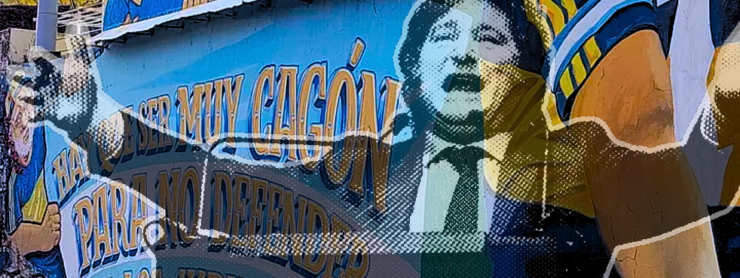

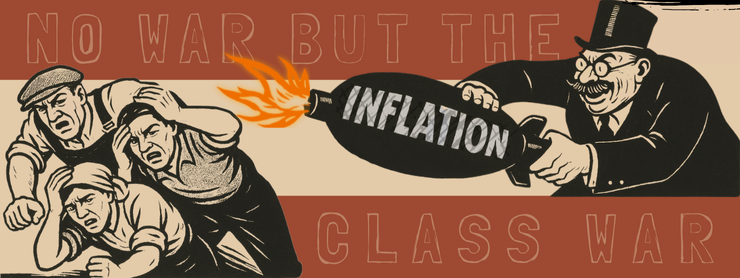


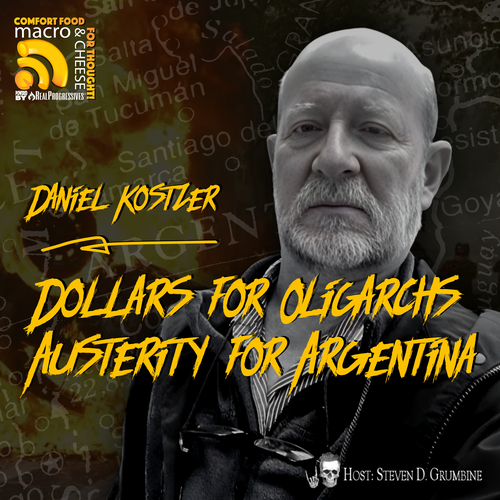
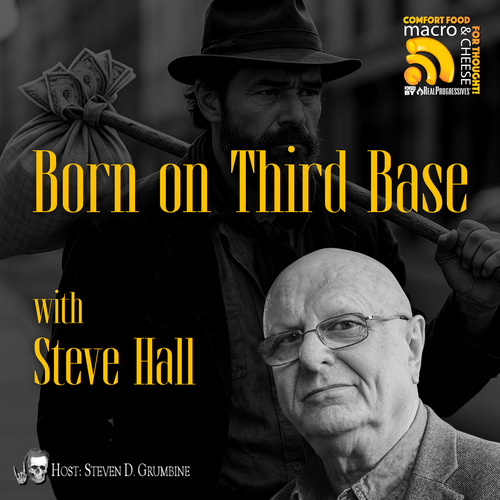
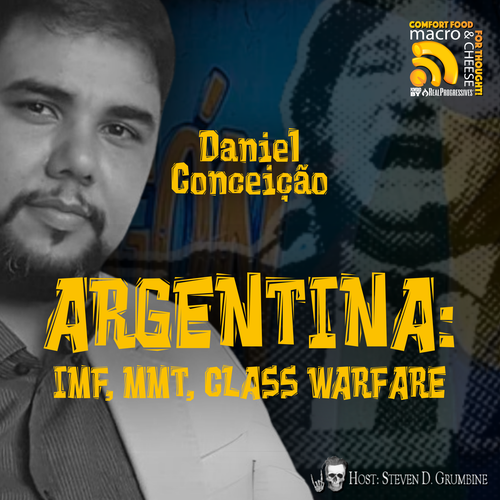

2 thoughts on “The SupraState That Saved the Lying Ancap Messiah”